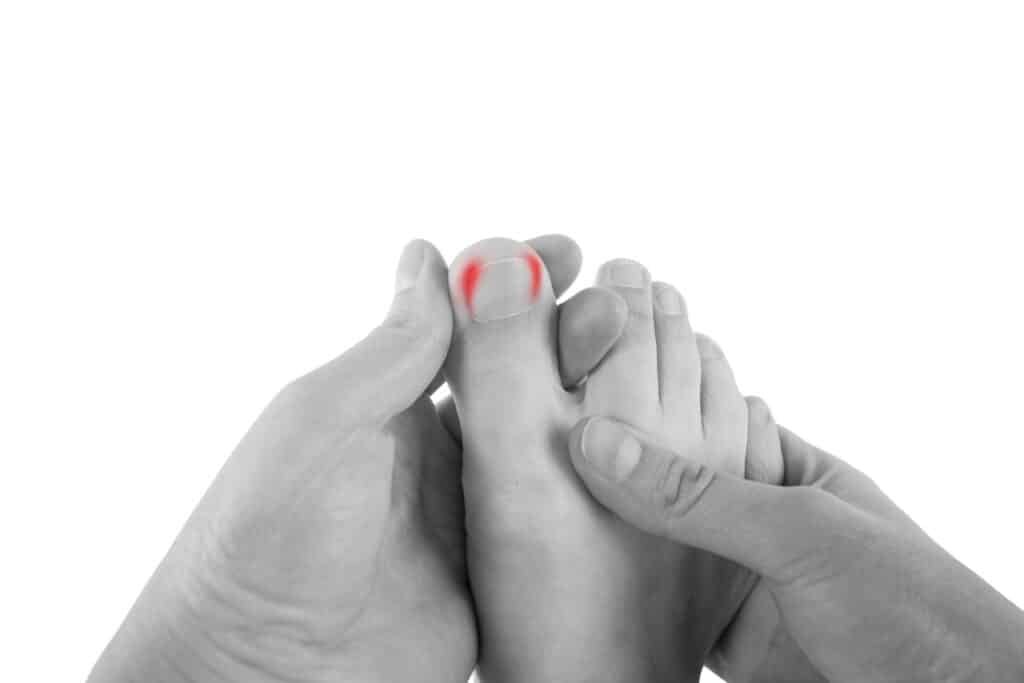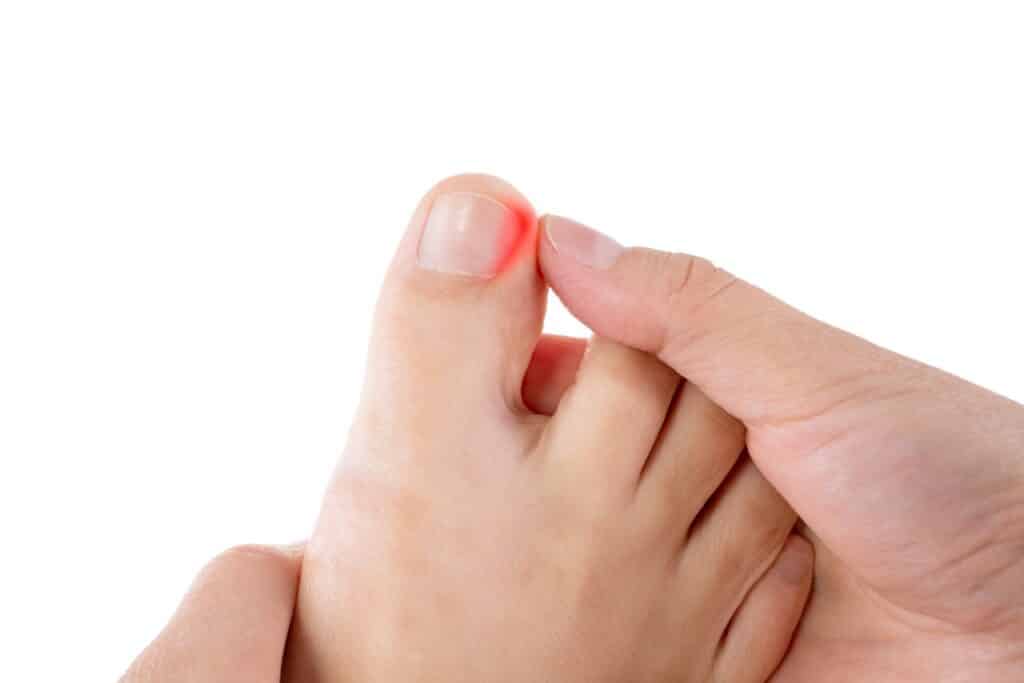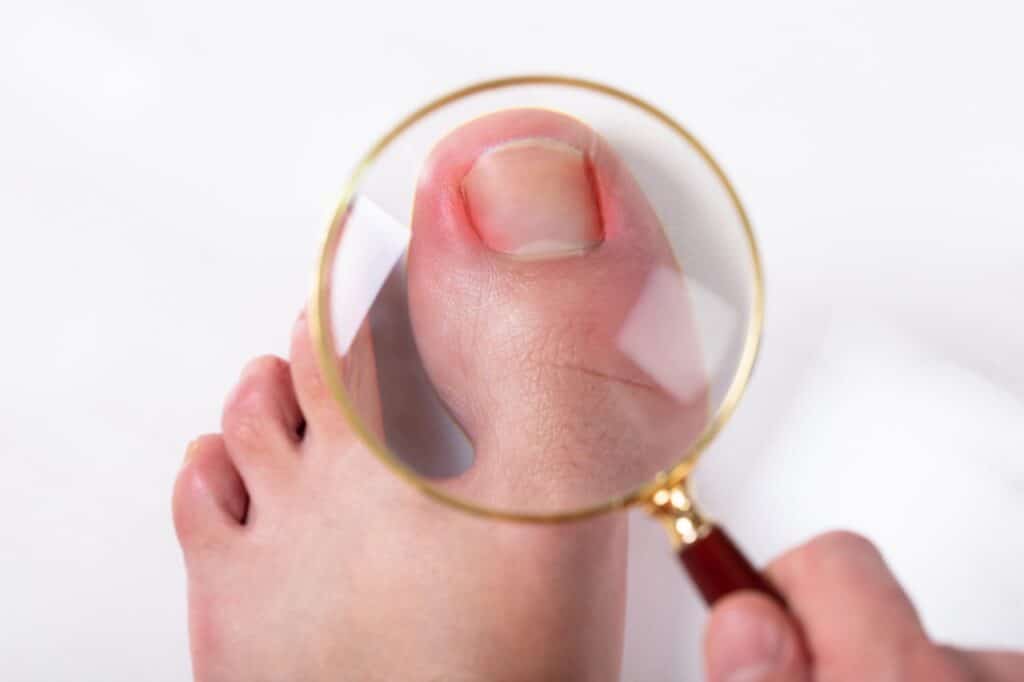Dealing with ingrown toenails can be a painful and frustrating experience. While they can occur as an isolated incident, some individuals may face the challenge of recurring ingrown toenails. In this blog, we will delve into the causes of ingrown toenails, their symptoms, methods to avoid them, and most importantly, how to prevent their recurrence. If you are struggling with recurring ingrown toenails, it is essential to seek professional help from our podiatrist. We are here to provide expert care and guidance for your foot health needs.
What are Ingrown Toenails?
Ingrown toenails, also known as onychocryptosis, develop when the edges or corners of the nails grow into the surrounding skin. This condition most commonly affects the big toe but can occur in any toe. Ingrown toenails can be quite painful and lead to redness, swelling, and even infection if left untreated. The pain can also make it difficult to walk or wear shoes comfortably.
What are the Main Causes of Ingrown Toenails?
Several factors contribute to the development of ingrown toenails, including:
- Improper Nail Trimming: Trimming your nails too short or rounding the edges can encourage the nails to grow into the surrounding skin.
- Ill-Fitting Shoes: Tight-fitting or narrow shoes can put pressure on the toes and lead to ingrown toenails.
- Trauma or Injury: Stubbing your toe or dropping something heavy on it can cause the nail to grow abnormally and become ingrown.
- Genetic Predisposition: Some individuals may have a genetic predisposition to develop ingrown toenails due to the shape or structure of their nails.

What are the Symptoms?
Recognizing the symptoms of ingrown toenails is crucial for early intervention. Look out for the following signs:
- Pain and tenderness along the edges of the toenail.
- Redness and swelling around the nail.
- Formation of a tender, fluid-filled blister or pus.
- Difficulty wearing shoes or walking comfortably.
Are There Ways to Avoid Ingrown Nails?
While not all cases of ingrown toenails can be prevented, there are steps you can take to reduce your risk:
- Trim Nails Properly: Cut your nails straight across and avoid rounding the edges. Do not trim them too short, as this can increase the likelihood of ingrown nails. Keeping the nails at a moderate length can help prevent them from digging into the skin.
- Wear Proper Footwear: Choose shoes that fit well and provide enough room for your toes to move comfortably. Avoid tight or narrow shoes that squeeze your toes together.
- Practice Good Foot Hygiene: Keep your feet clean and dry, and regularly moisturize the skin to prevent dryness and cracking.
- Protect Your Toes: If you participate in activities that may expose your feet to trauma, such as sports or heavy labor, consider wearing protective footwear.

Can Ingrown Toenails Ever Come Back?
While recurring ingrown toenails can indeed be frustrating, it’s important to know that there are factors that can contribute to their reappearance. Understanding these factors and taking appropriate measures can help minimize the chances of ingrown toenails coming back.
One factor that can contribute to recurrent ingrown toenails is the shape of your nails. Some individuals naturally have nails that are more curved or sharply angled, making them more prone to growing into the surrounding skin. In such cases, it may be necessary to modify your nail care routine and take extra precautions to prevent ingrowth.
Another factor is improper nail trimming. Cutting the nails too short or rounding the edges can increase the likelihood of the nails growing into the skin. To minimize the risk of recurrence, it is important to trim your nails straight across and avoid cutting them too close to the skin. Keeping the nails at a moderate length can also help prevent them from digging into the surrounding tissue.
Genetics can also play a role in predisposing individuals to ingrown toenails. If you have a family history of ingrown nails, you may be more prone to experiencing them yourself. While you can’t change your genetics, you can still take proactive steps to prevent recurrences by practicing good foot hygiene and nail care.
Seeking professional help from Dr. Miyazaki is crucial in managing and preventing recurring ingrown toenails. She can assess your situation, provide appropriate treatment, and offer guidance on preventive measures. She may recommend specific techniques for nail trimming, suggest footwear modifications, or provide custom orthotics to reduce pressure on the toes.
It’s important to note that even with the best preventive measures, there is still a slight possibility of ingrown toenails recurring. However, by following proper nail care techniques, wearing appropriate footwear, and seeking professional care, you can significantly reduce the chances of experiencing this condition again.
Remember, if you notice any signs of an ingrown toenail, such as pain, redness, or swelling, it is crucial to seek prompt professional care. Early intervention can prevent the condition from worsening and minimize the risk of recurrence. Our podiatrist can provide you with personalized recommendations based on your specific situation, helping you maintain healthy and pain-free feet.

How to Stop Recurring Ingrown Nails:
If you are struggling with recurring ingrown toenails, it is highly recommended to consult our office. We can assess your condition and provide appropriate treatment options, such as:
- Partial or Complete Nail Removal: Our podiatrist may recommend removing a portion of the affected nail to prevent recurrence in severe cases.
- Nail Avulsion: This procedure involves removing the ingrown portion of the nail and applying a chemical or laser treatment to prevent regrowth.
- Antibiotics or Antifungal Medications: If an infection is present, our podiatrist may prescribe antibiotics or antifungal medications to address the underlying issue.
- Education and Prevention Strategies: Our podiatrist can provide guidance on proper nail trimming techniques, footwear selection, and ongoing foot care to minimize the risk of recurrence.
Dealing with Recurring Ingrown Toenails? Come See Us Today!
If you are struggling with recurring ingrown toenails, seeking professional help from our experienced podiatrist is crucial. Our experienced team is dedicated to providing personalized care and effective solutions for your foot health concerns.
We will assess your condition, offer tailored treatment options, and provide education on preventive measures to stop the cycle of recurring ingrown toenails. Don’t let ingrown toenails hinder your daily activities—schedule an appointment with us today and take the first step towards pain-free and healthy feet.